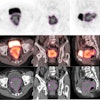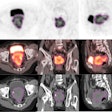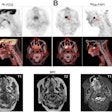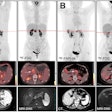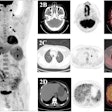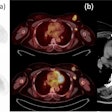
A combination of radiation therapy and immunotherapy shows promise for patients with recurring or metastatic head and neck squamous cell carcinoma (HNSCC), according to a presentation delivered on February 28 at the Multidisciplinary Head and Neck Cancers Symposium in Scottsdale, AZ.
Specifically, combining radiation and the immunotherapy drug pembrolizumab offers an alternative treatment option to patients who may not be able to tolerate the current standard of treatment for the disease -- cisplatin chemotherapy, a platinum-based protocol that can cause permanent hearing loss and exacerbate preexisting kidney and nerve damage.
"Cisplatin, while effective, tends to be particularly toxic for patients and can lead to permanent side effects for some," lead researcher Dr. Jared Weiss of the University of North Carolina in Chapel Hill said in a statement released by the American Society for Radiation Oncology (ASTRO), a co-sponsor of the conference. "I have patients I want to treat with platinum chemotherapy, but I also want to align treatment with their values. Is the patient willing to accept a risk of deafness or exacerbated ringing in their ears? These are not acceptable consequences for most people."
Using immunotherapy with chemoradiotherapy has been shown to improve lung cancer survival, but its potential for head and neck cancers has not been explored, according to Weiss. He and his team conducted a study that included 29 patients with locally advanced HNSCC. The majority of patients (72.4%) had stage III or IV disease.
All patients were ineligible for platinum chemotherapy. Instead, they were treated with three cycles of pembrolizumab and concurrent radiation therapy over six weeks, followed by three additional cycles of pembrolizumab. The primary endpoint of the study was progression-free survival of at least 16 months.
Weiss and colleagues found the following progression-free and overall survival rates in patients who underwent radiation and immunotherapy with pembrolizumab:
| Radiation and immunotherapy performance for head and neck cancer | ||
| Time frame | Progression-free survival rate | Overall survival rate |
| Median follow up of 21 months | 76% | 86% |
| 1 year, patients with HPV-associated oropharyngeal (p16+) cancer | 88% | 94% |
| 1 year, all other patients | 58% | 75% |
| Estimated 2 year | 71% | 75% |
"The primary progression-free survival endpoint exceeded [our] hypothesized 16 months," Weiss and colleagues wrote.
Additionally, most toxicities from the treatment combination were mild (grades 1 to 2), although patients with lymphopenia had higher toxicity grades (3 to 4) -- and 59% of patients were affected by lymphopenia.
"This toxicity profile is better than what patients generally experience with cisplatin and radiation," Weiss said. "It was more consistent with what we see from radiation therapy alone, with the exception of a high rate of lymphopenia that warrants additional study."
The findings need confirmation by randomized trial before the treatment combination of radiation and pembrolizumab can be offered to patients, Weiss noted.
The Multidisciplinary Head and Neck Cancers Symposium is co-sponsored by ASTRO, the American Society of Clinical Oncology, the American Head and Neck Society, and the Society for Immunotherapy of Cancer.



